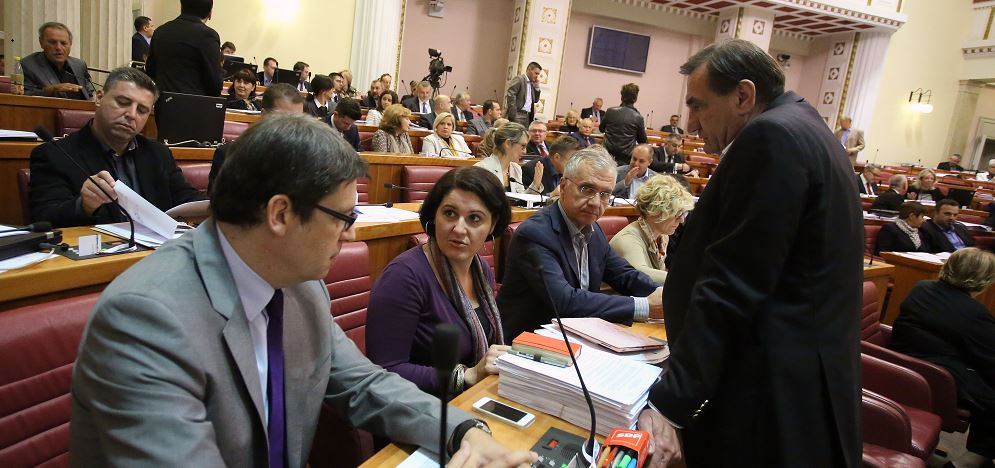The Croatian parliament will start a new session on Wednesday next week and already on Thursday it will start a debate on proposals for changing electoral rules that were submitted to the Parliament Presidency by November 3, Speaker Josip Leko said after a session of the Parliament Presidency on Tuesday.
The parliament speaker said that a week after the start of the next parliament session, the parliament would discuss a revised budget for this year.
Leko said agreement was reached to discuss the submitted proposals for changing the election legislation so that all parliamentary groups could publicly present their views on the matter.
After that, “a common denominator” would be sought in discussions among party groups, Leko said, adding that he believed a joint proposal could be agreed.
The parliament has received four proposals for changing electoral rules, and the main opposition HDZ party has put forward topics for discussion, asking that before amending legislation on the elections of members of Parliament, the parliament amend the constitution.
“The main precondition for amending the election legislation for us is amendment of the Constitution so that we can restore the right of all Croatian voters to vote under the same conditions and so that we can resolve the still unresolved issue of referendums,” said Davorin Mlakar of the HDZ.
Mlakar confirmed that amending the constitution was the precondition for the HDZ to support any change to electoral rules, recalling that constitutional amendments that were agreed on by most parliamentary groups at the proposal of the ruling Social Democratic Party (SDP) had been on the parliament’s agenda for months.
“That’s the precondition for changing the election legislation so that it could incorporate all the proposals, including preferential voting, the issue of replacement of MPs elected in a preferential vote, and a number of rules from the laws on constituencies and local elections so and so that we could have a single unified system,” said Mlakar.
The HDZ has not yet defined what type of preferential voting it wants.
Commenting on Mlakar’s remark about the voting of the Croatian diaspora, Pedja Grbin of the SDP said the issue was defined by the 2010 constitutional amendments.
He said that the SDP proposed a number of technical changes to the election legislation, the main ones being the introduction of preferential voting, the introduction of a gender equality quota, and the abolishment of the institute of slate head.
He said that the institute was unnecessary in a system with preferential voting, with all candidates being enumerated on a ballot.
Labour Party MP Dragutin Lesar said it seemed to him that the SDP had an ulterior motive in proposing the abolishment of the institute of slate heads, namely to weaken its political rivals.
Independent MP Jadranka Kosor, who together with independent MP Josip Kregar and Gvozden Flego of the SDP proposed a preferential voting model based on three votes, with a threshold of 5% instead of 10% as is now the case, said she was confident that a joint model of preferential voting could be agreed if there was will to do it.
She noted that the parliament should not ignore signatures gathered as part of a drive launched by the civil society group “In the name of the family” which calls for regulating electoral rules with amendments to the constitution.
“One should launch the procedure and determine the number of collected signatures and ask the Constitutional Court for its position on the matter so that it is determined how many voters must sign a referendum petition for it to be valid,” said Kosor.
